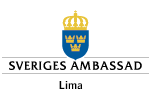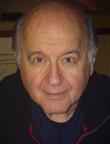![]() When Hernando de Soto, PhD, reached the podium in the opening lecture of the Building Good Economies conference, he placed an apple and his wallet on the podium.“This is my apple, but there is nothing in the apple that says it’s mine,” he said. “There’s nothing in the apple that says you can lease it or buy it, that you can sell it or mortgage it.
When Hernando de Soto, PhD, reached the podium in the opening lecture of the Building Good Economies conference, he placed an apple and his wallet on the podium.“This is my apple, but there is nothing in the apple that says it’s mine,” he said. “There’s nothing in the apple that says you can lease it or buy it, that you can sell it or mortgage it.
There’s none of that. Apples don’t say things.”“For the world, the real economy is here,” he said lifting his wallet, “not here.” He pointed to the apple.God gave us the apple, said de Soto, and we gave ourselves the wallet “to help organize.”
De Soto’s lecture, titled “How Can Markets Help Close the Gaps Between Rich and Poor? The Power of Documents,” was the opening salvo in a conference marking 125 years of modern Catholic social teaching sparked by Pope Leo XIII’s encyclical Rerum novarum (On the Condition of Labor), which brought the church in dialogue with the challenges of modern industrialized economies.In greeting the conference attendees, Joseph M. McShane, SJ, president of Fordham, said the encyclical allowed the church to engage with the broader world to espouse natural rights amidst modernization.“
This is a conference that honors the 125th anniversary,” he said. “But it’s also one that challenges the church now, a church preparing for a future we cannot conceive of, [and]for a new encounter with the modern world.
Father McShane hinted of Americans coping with changes induced by the digital age, and de Soto spoke of indigenous people in Peru coming to grips with globalization.As a Peruvian economist and president of the Institute for Liberty and Democracy in Lima, Peru, de Soto has worked toward expanding property rights for the poor.
He explained how indigenous communities in his country viewed their land as the apple, but quickly became acclimated with the wallet when a U.S. mining company wanted to buy their land.He said the subsoil of their properties, which contained gold, belonged to the state, and the state sold the subsoil to the U.S. company.The topsoil, however, had to be negotiated with community leaders and then each individual plot owner, de Soto said.
The U.S. companies had managed to obtain formal paperwork by “understanding informal customs,” and in the process walked away with deeds to all the properties.As the farmers continued to live on their land, the company reaped $6.5 billion in investments internationally on their initial investment of $150 million.
Through a bilateral investment treaty, the deal was sealed so that even the Peruvian Congress would could not reverse the deal and nationalize the properties.“Titles matter,” he said. “Whoever’s got the title has got the power. The world is owned by those who have a title on the asset, provided it’s a good title.”He said the indigenous people didn’t fully comprehend the sale, or, for that matter, the exorbitant profits made after their initial sale of their land. He said that such global moves promote instability, because the indigenous people “understand the land but not the deed.”
He noted that the Arab Spring uprisings were rooted in property being taken away from people, too.He said that for the sake of stability it is in the interest of the state to document property ownership; otherwise, terrorists who “protect the assets of the poor” will become increasingly popular.In the struggle against the Shining Path terrorist group in Peru, he said, solidifying the documents for land ownership for the poor worked toward stability in the region.“That’s why it’s important [for the states]to record the assets, because it’s not about the apples you can show, it’s about this!” he said lifting his wallet.
The Building Good Economies Conference is sponsored by the The Francis and Ann Curran Center for American Catholic Studies. It continues through Friday, April 22 at the Lincoln Center campus.
....
Read the whole article on the website of Fordham University


